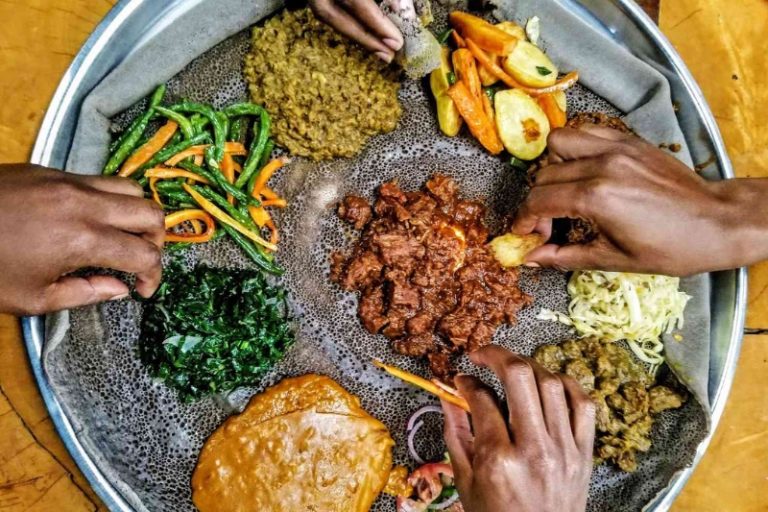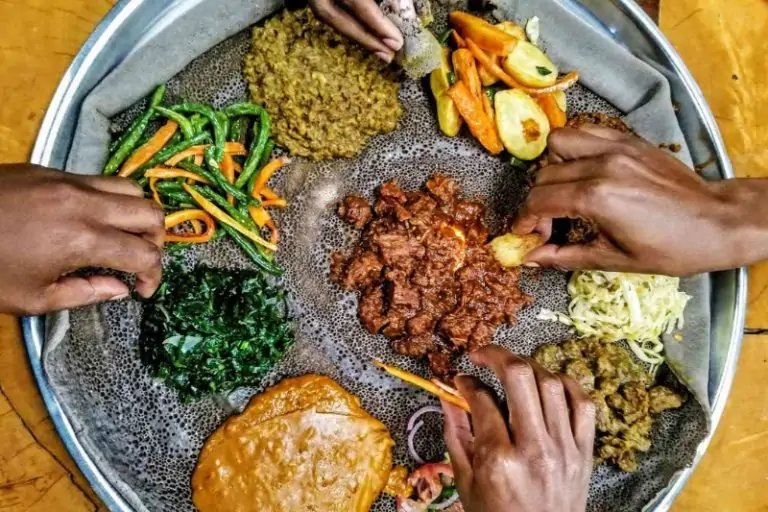

african food in the diaspora an odyssey of resilience and cultural fusion
African food in the diaspora is unique among the busy streets of far-off cities since the tastes of our ancestors still linger on dishes and on palates of our distant cousins. African food’s trip across the diaspora is one of resiliency, inventiveness, and cultural synthesis. A complex narrative of how the culinary legacy of Africa keeps changing and captivating hearts far from its borders unfolds as the enticing smells of spices and the vivid colors of exotic foods fill kitchens and restaurants worldwide. Come travel with us across boundaries and time to discover the delicious world of African cuisine in the diaspora.
African food in the diaspora, as used in this article, is the gastronomic customs and cuisine of persons of African heritage living outside of the African continent. Africans carried their dietary customs with them as they moved to other countries; these have subsequently changed and adapted to local foods, cooking techniques, and cultural influences.
African cuisine has sometimes blended with the cooking customs of the nations where Africans settled in the diaspora. Unique and vivid food cultures have come out of this mix. For instance, African culinary traditions have combined with indigenous, European, and Indian inspirations in the Caribbean to produce dishes like callaloo, rice and peas and jerk chicken.
Many diaspora African cultures deliberately retain their native cuisine. Many times passed down over years, these dishes remain a significant component of their cultural legacy. Common dishes are jollof rice, fufu, injera, and egusi soup.
For diasporic populations, African cuisine is vital in social events and communal meetings. Traditional African foods abound in events including weddings, festivities, and religious observances. These events give people chances to celebrate together, share tales, and connect with their cultural roots.
As African cuisine became well-known in the diaspora, several African restaurants and food companies opened up. These venues act as centers for the African diaspora as well as for those from other backgrounds drawn in to sample African tastes. They highlight the depth and variety of African culinary traditions by providing a wide spectrum of meals from several African areas.
In many different countries, African cuisine has also become rather popular in mainstream food culture. Ethiopian injera and West African jollof rice have become somewhat well-known and are available in non-African eateries. Modern dishes are featuring African ingredients including plantains, yams, and spices like berbere and harissa, therefore highlighting the impact of African cuisine on world food trends.
As African people preserve and share their culinary legacy while accepting the effects of their new surroundings, African food culture in the diaspora demonstrates their resilience, flexibility, and inventiveness generally.
A number of elements have shaped African food’s development in the diaspora: availability of resources, local tastes and preferences, cultural interaction, and creative output of African groups. Following are some salient features of the diaspora’s African culinary evolution:
The adaptation of traditional African ingredients to local alternatives is one major feature of the change of African cuisine in the diaspora. Many times, African diaspora members have had to locate substitute substances that nearly match those utilized in their own nations. For instance, recipes like Nigerian efo riro or Ghanaian kontomire stew call for similar substitutes like collard greens or spinach in place of particular African leafy greens absent from the cuisine.
Fusion cuisine has emerged from the mixing of African culinary traditions with local cuisines imported into the diaspora. Unique combinations have come from African diasporic populations including local cooking methods, flavors, and ingredients into their traditional dishes. Foods like Afro-Caribbean jerk chicken, Afro-Asian curries, and Afro-Latin stews exhibit this mix.
Global food trends and cultural contact have also shaped African cuisine in the diaspora. Africans who engage with several cultures and cuisines sometimes adapt aspects into their own cooking techniques. To produce new flavors and foods that mirror their eclectic experiences, African diaspora cultures could play around with spices, condiments, or cooking techniques from other cuisines.
To fit shifting preferences and lifestyles, African food in the diaspora has modernized and innovated. New culinary methods and technologies have been included while traditional recipes have been modified to be more handy and easily available. Rising African food bloggers, chefs, and entrepreneurs reinterpreting and showcasing African cuisine in fresh and interesting ways reflect this.
African cuisine in the diaspora has been increasingly valued and acknowledged over years. African cuisine has become much more well-known thanks in great part to African restaurants, food festivals, and cultural activities. Greater demand for African flavors and ingredients resulting from this growing awareness has driven African food in the diaspora’s development even more.
African food evolved in the diaspora is a dynamic process influenced still by several elements. As African people negotiate new culinary environments while preserving their cultural roots, it displays their tenacity, adaptation, and inventiveness.
As African food in the diaspora keeps becoming more well-known, its future seems bright. More African restaurants, food festivals, and cultural events are opening as people from African nations and their descendants settle all throughout the globe desire real African cuisine. This tendency is probably helping to diversify world culinary scenes and raise respect of the rich tastes and customs of African cuisine.
Globally, African cuisine is becoming more and more well-known; this tendency is probably going to last going forward. Investigating many and real flavors is becoming more and more interesting as individuals choose more daring cuisine. This growing awareness will inspire African food to be included into mainstream cuisine and drive demand among diaspora people.
African diasporic groups are well-known for their inventiveness in combining and modifying cooking techniques. This invention will keep changing going forward, producing fascinating blends of African tastes with various cuisines. To produce modern African-inspired meals that fit evolving tastes and preferences, chefs, food entrepreneurs, and home cooks will play with new technologies, ingredients, and presentations.
Sustainable and nutritious eating practices will probably take the stage in African gastronomy in the diaspora going forward. Using locally grown, seasonal foods and implementing traditional African techniques stressing complete meals, various grains, and plant-based options will be increasingly important as people grow more aware of the environmental impact of their food choices. This fits Africa’s strong agricultural legacy as well as growing worldwide demand in healthy, sustainable food.
The future will see ongoing impact of technology and internet platforms on the distribution and advancement of African food in the diaspora. Sharing recipes, cooking methods, and anecdotes about African cuisine will depend much on social networking sites, food blogs, and online forums. These sites will link individuals, strengthen a feeling of community, and give chances for learning about different cultures.
African diasporic groups will keep making investments in projects for culinary education and empowerment. Focused on African food, cooking lessons, seminars, and culinary schools will develop, so preserving and passing on knowledge of traditional cooking skills to next generations. This would help African culinary arts to become more professional and generate financial possibilities inside the food sector for people from African backgrounds.
With increasing respect for its richness, variety, and cultural relevance, African food in the diaspora seems to be bright overall. African communities will be very important in determining the global food scene and promoting cross-cultural ties by means of the universal language of food as they preserve their culinary legacy while embracing invention and adaptation.
The path of tastes and customs from the continent to many parts of the globe has been evidence of resiliency, flexibility, and cultural preservation in the mosaic of the African diaspora. African food has crossed boundaries and woven itself into the gastronomic fabric of innumerable countries throughout millennia of migration. Along with celebrating variety, this gourmet adventure has highlighted the shared human experience of looking for connection via food. We appreciate the vivid tapestry of history, identity, and community that has enhanced our global palette as we savor the rich flavors, smells, and stories African cuisine offers to our tables.
Starting April 2, South African drivers will get lower costs when filling their tanks as fuel prices decrease for all…
The U.S.-based driver training company Zutobi analyzed road safety worldwide and found South Africa stays last in driving danger since…
The Basketball Africa League (BAL) returns for its 2025 season with exciting changes and developments. Since 2019 the NBA-linked basketball…
The Somali president supports their military forces to eliminate the threats from Al-Shabaab, ISIS, and Al-Qaeda. The Somali National Army…
UAE President Sheikh Mohamed bin Zayed Al Nahyan held talks with President Faustin Archange Touadéra of the Central African Republic…
African football teams struggle intensely in the World Cup Qualification rounds to earn their place on the international football stage.…
This website uses cookies.